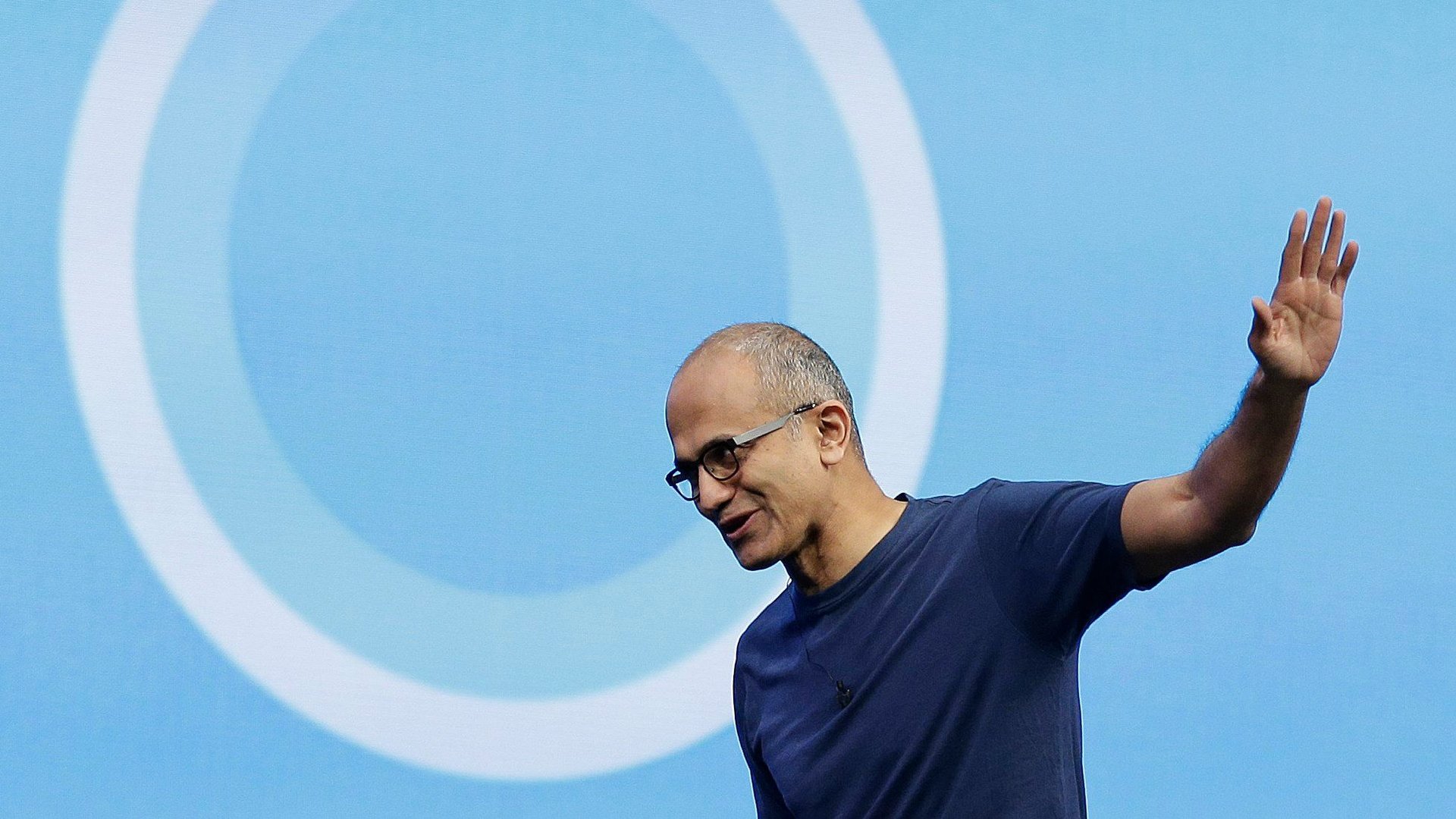The three traits Microsoft CEO Satya Nadella looks for in leaders
When Satya Nadella joined Microsoft in 1992 at the age of 25, the future CEO, an engineer by training, did not yet hold a business degree. He would complete his MBA at the University of Chicago five years later, without taking time off from his full-time job. Every Friday night, Nadella would board a plane from Seattle to Chicago, and return by Monday morning.


When Satya Nadella joined Microsoft in 1992 at the age of 25, the future CEO, an engineer by training, did not yet hold a business degree. He would complete his MBA at the University of Chicago five years later, without taking time off from his full-time job. Every Friday night, Nadella would board a plane from Seattle to Chicago, and return by Monday morning.
“It used to blow me away, how hard he used to work,” former Microsoft executive Sanjay Parthasarathy, now CEO of Indix, told Business Insider.
Last month, Nadella, who succeeded Steve Ballmer as head of Microsoft in 2014, visited his alma mater, where he was interviewed on stage by Madhav Rajan, dean of the University of Chicago’s Booth School of Business.
According to a recap on the school’s website, Nadella said that a lot of the MBA students were, like him, fairly experienced and knowledgeable before they had even started their studies. What he said school could offer them, among other things, is an opportunity to cultivate leadership traits, including the three attributes he said Microsoft looks for in job candidates.
As it happens, much of his guidance serves as decent life advice, too.
Attribute #1: The ability to create clarity when none exists
This is “the most important attribute that any leader needs to have—and it is often underestimated,” Nadella said. “You don’t need a leader when everything is well defined and it’s easy, and all you have got to do is follow a well-written plan. But in an ambiguous situation, where there cannot be complete information, that is when leadership will matter.”
He continued: “The people who are capable of getting into a situation where there is in some sense panic, and who can bring first clarity on what to do next—that is invaluable.”
Attribute #2: A knack for sparking energy
Along with clarity, a leader needs to bring sincere enthusiasm, Nadella argued. “One of the classic things you face as a leader is, you will have someone walk into your office and say, ‘Hey you know what, I’m very good, my team is very good, but everything around me is terrible,’” he said. “That’s not creating energy.”
This is a theme Nadella also visits in his recent memoir, Hit Refresh: The Quest to Rediscover Microsoft’s Soul and Imagine a Better Future for Everyone (Harper Collins, 2017). “Leaders generate energy, not only on their own teams but across the company,” he writes. “It’s insufficient to focus exclusively on your own unit. Leaders need to inspire optimism, creativity, shared commitment and growth through times good and bad.”
To be a leader, he told Booth students, “you have got to be at your evangelical best. You have got to have followership all around you.”
Attribute #3: An ability to succeed in “an over-constrained space”
His advice for cultivating a third trait feels applicable to anyone, not only those who are ambitious in business. “When leaders come in and say, ‘I’m not able to do this or I’m not able to drive success or achieve success because of all these exogenous factors.’ Guess what? Everything is exogenous,” he said. “Life is an over-constraint problem. So you can’t say, ‘You know what, I’m just waiting for you to remove all the constraints, and I’ll be perfect.’